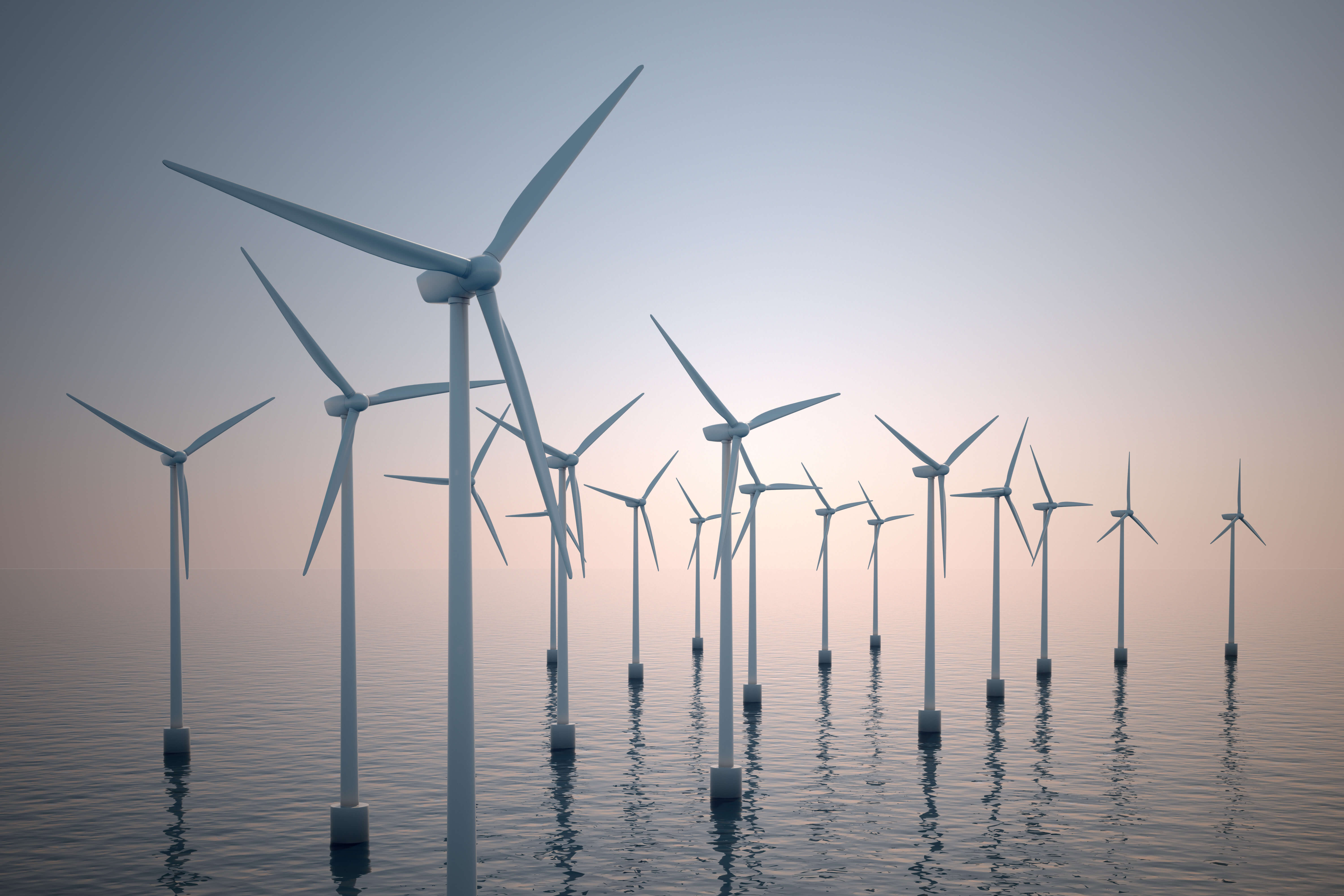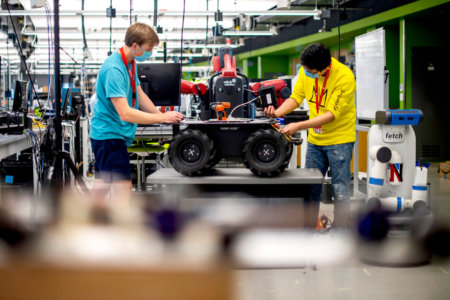With climate change, the internet of things, and opportunities with renewable energy, the energy field is diverse and wrought with opportunities for innovation to reduce energy consumption and improve energy efficiency. From inventing new technologies to planning and implementing energy systems, there is a wide range of engineering career opportunities available. Northeastern University College of Engineering’s master’s degree programs allow students to develop the specialized expertise needed to advance their career in the energy sector.
The Master of Science (MS) in Energy Systems program integrates the technology side of energy systems development with the financial planning needed to effectively implement new technologies. Students learn current and future energy systems technologies, to integrate energy-related technologies with the economics and financial considerations required to implement them. They also learn to develop leadership and decision-making skills to implement energy systems in either the private or public sectors of the global market.
The curriculum is flexibly designed with a set of four core courses in engineering knowledge and finance in addition to four electives. Students gain strong knowledge in energy-related engineering concepts, including power strategies, energy renewal, sustainable energy solutions, energy storage, energy conversion, and energy efficiency.
Under Assistant Professor Hongli Zhu of the Department of Mechanical and Industrial Engineering, Pengyang Xiang, an MS in Energy Systems student, is researching redox flow battery for large-scale energy storage systems. Xiang’s master’s thesis will focus on high-performance porous membranes for flow batteries.
“I have been impressed by the quality of Northeastern’s facilities. We have lots of new technology and new devices we can use which is really helpful for my research,” Xiang says.
After graduation, Xiang will pursue a position in clean technology investment. He wants to be involved with finding and funding projects to produce carbon capture, renewable energy development, and high-performance battery technologies.
Meanwhile, MS in Energy Systems graduate, AbdurRehman Rashid, who was originally interested in renewable energy positions such as wind energy companies and solar deployment companies — has since found his niche in waste water.
After completing his co-op — a professional position in industry in his field as part of Northeastern’s academic curriculum — at InnoSepra, a renewable natural gas production company, Rashid joined another company that produces catalytic systems to remove harmful organic compounds from the air generated by household products.
After graduation, he transitioned from air purification to water purification as a project engineer at CrossTek Membrane Technology.
Flexibility
In addition to being offered at Northeastern University’s Boston, Massachusetts, campus, the MS in Energy Systems is offered 100% online. The option gives working professionals and others the flexibility needed to pursue an advanced degree.
For those looking to enter the technology and energy field, but do not have an engineering background, a bridge program is available. The Energy Systems Academic Link (AL) is a version of the MS in Energy Systems program for students who have undergone first-year calculus, physics, and chemistry during their undergraduate studies, but have no prior exposure to thermos-sciences. With this route, students take two core courses that cover topics across thermal sciences, math, and the general energy systems curriculum to earn the MS in Energy Systems degree.

Source: Northeastern University, College of Engineering
Top-tier research
Students can also pursue their passion for energy engineering with several other master’s in engineering degrees. Northeastern University is an R1 research institution and energy research crosses several engineering disciplines. In 2021 alone, several faculty received prestigious National Science Foundation CAREER Awards for energy-related research.
Top research projects include: Electrical and Computer Engineering Associate Professor Mahshid Amirabadi’s “Universal SiC-Based Power Converters for Renewable Energy Systems”; Chemical Engineering DiPietro Assistant Professor Joshua Gallaway’s “Engineering Electrochemical Reversibility in Disordered Materials for High Energy Density Batteries”; and Civil and Environmental Engineering Assistant Professor Michael Kane’s “Human Centric Automation in the Built Environment” for smart and energy-efficient home thermostats.
Another expert creating energy is Civil and Environmental Engineering Associate Professor Andrew Myers, who was a winner of the 2020 Cleantech Open Northeast startup accelerator program. His standout start-up, T-Omega Wind, boasts an innovative floating wind turbine based around technology and research developed and patented at Northeastern University.
In the area of the internet of things, Professor Matteo Rinaldi is leading a US$1.7 million grant from the U.S. Department of Energy Advanced Research Projects Agency to develop a network of zero-power wireless infrared digitizing sensors for large-scale energy smart farms. The technology helps farmers maximize their crop yields by monitoring in real-time when plants need water.
From researching innovations that advance society to pursuing an industrial or public-planning-based career, the energy sector is evolving and creating many career paths. To take the next step in your career, visit Northeastern University’s College of Engineering and apply today.
Follow Northeastern University on Facebook, Twitter, Instagram, YouTube, and LinkedIn













